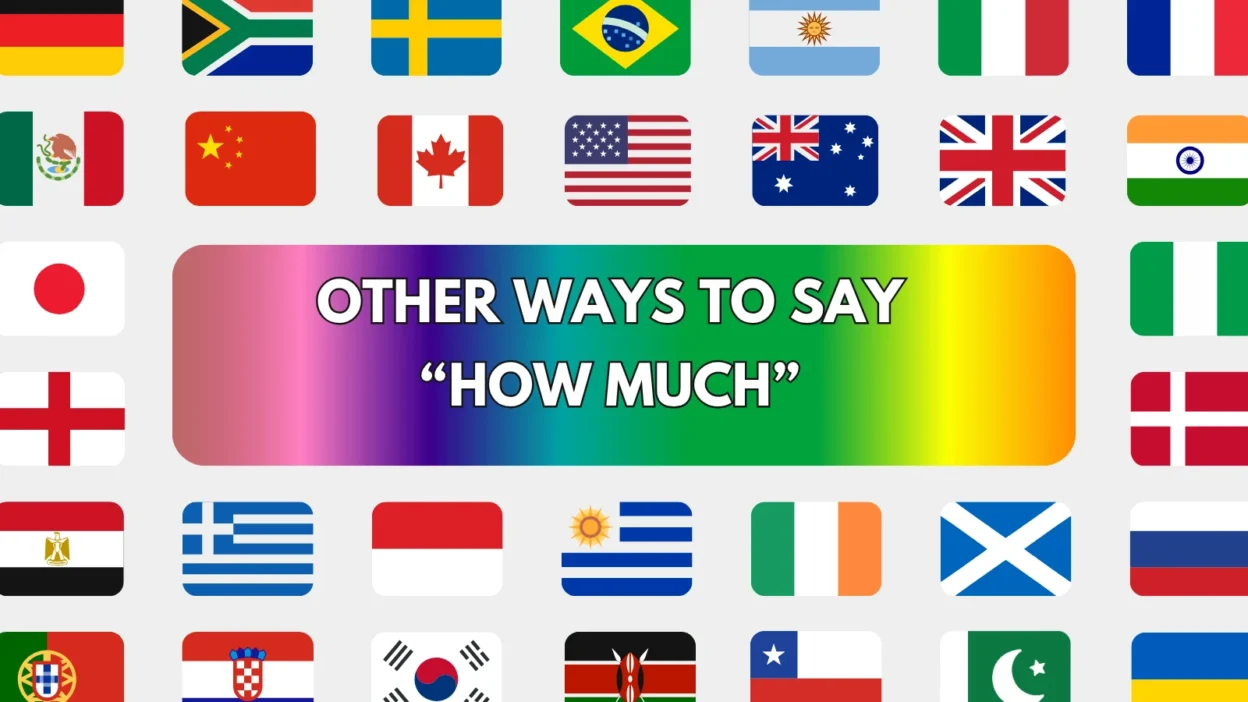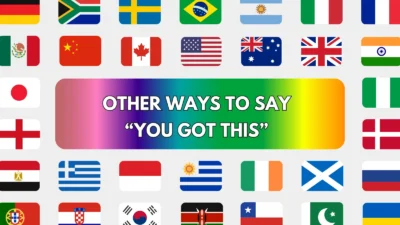The phrase “how much” is one of the most common expressions in English. It’s used to ask about price, quantity, degree, or intensity — like “How much does it cost?” or “How much do you love me?” But repeating it too often can make your language sound plain or repetitive.
If you want to sound more natural, polite, or expressive, there are many other ways to say “how much” depending on the situation.
Below are 25 smart and conversational alternatives you can use in everyday talk, writing, or formal communication — with their meanings, examples, best usage, and tone.
1. What’s the price?
Meaning: A direct question asking for cost.
Example: What’s the price of this jacket?
Best Use: When shopping or discussing money.
Tone: Neutral, polite.
2. How much does it cost?
Meaning: Standard phrase to ask about price.
Example: How much does it cost to get in?
Best Use: Everyday purchases or inquiries.
Tone: Common, polite.
3. What’s the cost?
Meaning: Alternative to “how much,” slightly formal.
Example: What’s the cost of the upgrade?
Best Use: Business or professional settings.
Tone: Formal, direct.
4. What’s the rate?
Meaning: Asks about pricing structure or hourly charge.
Example: What’s the rate for your services?
Best Use: Freelance, rentals, or service discussions.
Tone: Professional, courteous.
5. What’s the value?
Meaning: Seeks the worth or importance of something.
Example: What’s the value of honesty in leadership?
Best Use: Abstract or philosophical contexts.
Tone: Reflective, formal.
6. What’s the amount?
Meaning: Asks for a total number or sum.
Example: What’s the amount due today?
Best Use: Payment or calculation discussions.
Tone: Polite, transactional.
7. What do I owe you?
Meaning: Casual way to ask for the cost of something.
Example: What do I owe you for the coffee?
Best Use: Informal or friendly exchanges.
Tone: Friendly, conversational.
8. Could you tell me the price?
Meaning: Polite way to inquire about cost.
Example: Could you tell me the price of this laptop?
Best Use: When you want to sound courteous.
Tone: Polite, professional.
9. What’s the total?
Meaning: Asks for the combined cost or sum.
Example: What’s the total for all three items?
Best Use: When completing a purchase.
Tone: Neutral, everyday.
10. What’s your fee?
Meaning: Refers to payment for professional services.
Example: What’s your consultation fee?
Best Use: Professional or formal settings.
Tone: Polite, professional.
11. How expensive is it?
Meaning: Asks about cost in a general sense.
Example: How expensive is this restaurant?
Best Use: Informal discussions.
Tone: Conversational, curious.
12. What’s the going rate?
Meaning: Refers to the current market price.
Example: What’s the going rate for rent in this area?
Best Use: Market or industry discussions.
Tone: Practical, businesslike.
13. What are we talking in terms of cost?
Meaning: Casual but detailed way to discuss money.
Example: What are we talking in terms of cost for this project?
Best Use: Informal business conversations.
Tone: Relaxed, friendly.
14. What kind of budget are we looking at?
Meaning: Estimates the financial range needed.
Example: What kind of budget are we looking at for this event?
Best Use: Planning or negotiation discussions.
Tone: Professional, cooperative.
15. What’s the charge?
Meaning: Asks about payment or penalty.
Example: What’s the charge for extra luggage?
Best Use: Travel, service, or billing contexts.
Tone: Neutral, formal.
16. What’s the worth?
Meaning: Seeks to know the real or perceived value.
Example: What’s the worth of this antique vase?
Best Use: Discussions on appraisal or meaning.
Tone: Thoughtful, formal.
17. How valuable is it?
Meaning: Questions importance or worth rather than money.
Example: How valuable is this skill in your job?
Best Use: Conversations about skills, ideas, or assets.
Tone: Reflective, formal.
18. What’s the quantity?
Meaning: Asks how many units or items there are.
Example: What’s the quantity required for this recipe?
Best Use: Technical, scientific, or instructional contexts.
Tone: Objective, neutral.
19. What’s the measure?
Meaning: Requests size, volume, or amount.
Example: What’s the measure of success in your opinion?
Best Use: Philosophical or metric-based contexts.
Tone: Analytical, thoughtful.
20. How big is it?
Meaning: A casual substitute when asking about size or extent.
Example: How big is the risk involved?
Best Use: Everyday or figurative use.
Tone: Informal, easygoing.
21. To what extent?
Meaning: Formal phrase meaning “how much” in degree.
Example: To what extent do you agree with this statement?
Best Use: Academic or analytical writing.
Tone: Formal, precise.
22. How far?
Meaning: Measures physical or metaphorical distance.
Example: How far are we from the city center?
Best Use: Travel or comparisons.
Tone: Informal, practical.
23. How great?
Meaning: Asks about the level or intensity of something.
Example: How great is the difference between the two options?
Best Use: Comparative discussions.
Tone: Neutral, evaluative.
24. What’s the degree?
Meaning: Refers to the level or extent of something.
Example: What’s the degree of damage to the car?
Best Use: Technical, scientific, or evaluative contexts.
Tone: Formal, analytical.
25. How many?
Meaning: Used when referring to countable items instead of uncountable ones.
Example: How many students attended the lecture?
Best Use: When the noun is plural or countable.
Tone: Common, natural.
Conclusion
The phrase “how much” has many shades of meaning — it can relate to money, quantity, emotion, or intensity. Using the right alternative makes your sentence clearer and better suited to context.
Whether you’re negotiating prices, measuring success, or expressing emotions, choose the phrase that fits best. With these 25 variations, you’ll sound more fluent, natural, and confident in every conversation.

Hadi Bhatti is a passionate writer and content creator at Saypadia, known for turning complex words, phrases, and internet slang into simple, easy-to-understand explanations. With a strong interest in language, meanings, and digital communication, Hadi focuses on helping readers understand what words really mean in everyday use. His writing style is clear, engaging, and user-focused, making learning both practical and enjoyable.




